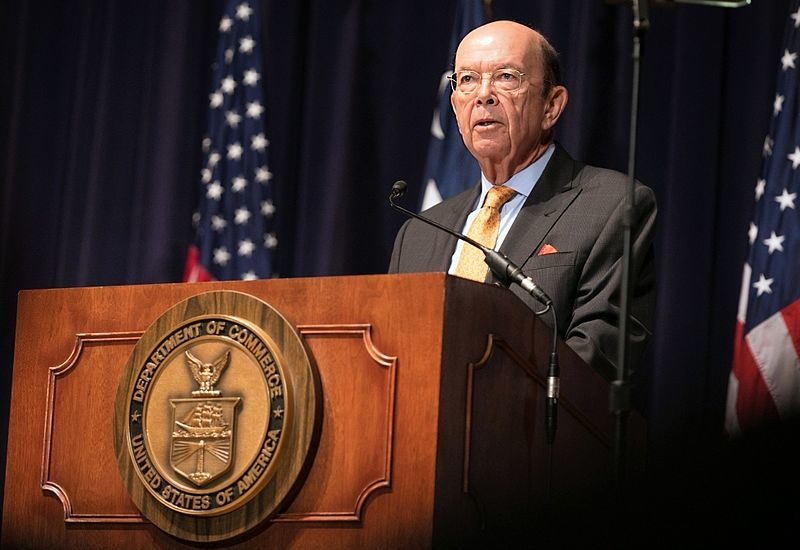When President Trump hired Wilbur Ross to serve as the Secretary of Commerce, it was seen as an easy confirmation compared to other controversy-prone neophytes chosen for other cabinet posts. Ross had the resume and the experience needed for the job. He seemed like a capable and qualified leader. The real icing on the cake was that Ross promised to divest from most of his prime business holdings; in November of 2017, he stated that he had done so. But a problem arose: Ross had lied.
Forbes has completed a weeks-long investigation into Ross’ lies regarding the full extent of his business dealings. They found that for the better part of 2017, the commerce secretary had “stakes in companies co-owned by the Chinese government, a shipping firm tied to Vladimir Putin’s inner circle, a Cypriot bank reportedly caught up in the Robert Mueller investigation and a huge player in an industry Ross is now investigating.”
It gets worse; any reasonable person would have dumped these toxic connections. But not Ross. He decided to sell a few of his interests to Goldman Sachs and put the rest in a trust fund for his family, which is not the same thing as divesting. Forbes also found that Ross had a substantial interest in a shipping company called Navigator Holdings, who in turn had a business relationship with a Russian energy company led by Vladimir Putin’s son-in-law. After the Paradise Papers exposed Ross’ indirect relationship with the Kremlin, he shorted stock in Navigator. This put him in a position to make money if Navigator’s stock plummeted in the wake of the Paradise Papers.
Interestingly enough, Ross told CNBC that he had disclosed his interest in Navigator multiple times on his financial disclosure form. Senator Richard Blumenthal (D-CT) countered by saying that “he and other members of Congress were under the impression that Ross had divested all of his interests in Navigator and were unaware of the company’s ties to Russians.”
Ross also had stakes in the Bank of Cyprus, another company tied to Russia. He had joined the bank’s board of directors as Vice Chairman, thinking that the bank would become more profitable. This did not happen because Cyprus’ economy was still languishing after the 2008 financial crisis. What’s more, one of the prime shareholders in the Bank of Cyprus is Viktor Vekselberg, the Russian oligarch with definitive links to Trump’s personal lawyer Michael Cohen.
Ross does not have all that much to say on all of these controversies. When Forbes asked what became of his holdings, he responded with a one-sentence statement saying that Ross’ “current assets would be reflected on an annual financial disclosure.”



